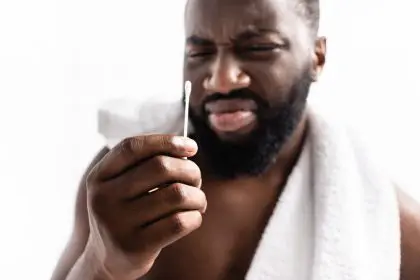Sexual desire is a multifaceted aspect of human experience that extends beyond simple attraction. It is an intricate dance involving physical, emotional and psychological elements. Understanding that libido is not static and can fluctuate due to various factors allows people to approach their sexual health with greater compassion and insight. It’s perfectly natural for desire to ebb and flow throughout life, influenced by changes in relationships, stress levels and overall well-being.
The science of libido
Libido isn’t just a result of biological impulses: it’s a comprehensive experience affected by a range of internal and external factors. Experts explain that sexual desire stems from an interplay between hormonal balance, mental health, emotional intimacy and personal comfort. While certain physical triggers, such as touch or visual cues, play a role, true sexual desire often relies on a sense of emotional safety and readiness. It’s important to remember that everyone’s libido is different, and there’s no one-size-fits-all model.
Medical considerations
When addressing changes in sexual desire, medical considerations are crucial. Hormonal fluctuations can impact libido, but they don’t always indicate a health crisis. Conditions like thyroid imbalances, menopause or medications can also play a part in how one feels. It’s essential for individuals to consult with health care professionals to rule out medical issues and gain a comprehensive view of their sexual health. Having these conversations openly with a trusted doctor helps pave the way for tailored solutions that promote a healthy, fulfilling intimate life.
Physical wellness and sexual energy
It might sound cliché, but good physical health is key to sustaining sexual desire. Regular exercise, for example, not only improves blood circulation but also boosts energy levels and mood. Simple activities like a 20-minute daily walk or a yoga session can enhance both physical and mental well-being, setting the stage for more passionate moments. Additionally, quality sleep and balanced nutrition contribute significantly to libido by keeping stress levels low and hormone production on track. A body that feels good is more likely to be ready for and responsive to intimacy.
Emotional intimacy’s role
Sexual desire is intricately linked to emotional bonds. When a couple feels disconnected or emotionally distant, it often leads to a dip in desire. Building and nurturing emotional intimacy can make a significant difference. Small gestures — like expressing gratitude, acknowledging a partner’s efforts and engaging in deep, meaningful conversations — can re-establish the closeness that fuels desire. Understanding that emotional intimacy is as vital as physical connection can lead to more fulfilling and satisfying relationships.
Navigating intimate communication
Communication is the bedrock of a healthy sex life. Openly discussing needs and preferences is vital for mutual satisfaction and comfort. This kind of dialogue allows couples to explore what feels good and set boundaries in a safe, nonjudgmental space. Creating a relationship environment where vulnerability is welcomed can transform how people experience intimacy. When both partners feel heard and understood, it often leads to greater passion and trust.
Professional support and guidance
Sometimes, personal efforts to improve sexual desire aren’t enough. When that happens, professional help can be a game-changer. Sex therapists and relationship counselors specialize in helping individuals and couples navigate emotional and psychological obstacles to intimacy. Whether it’s dealing with trauma, stress or communication challenges, professional guidance can offer fresh perspectives and proven techniques for boosting desire and reconnecting with one’s partner.
Strategic approaches to enhancing libido
Improving sexual desire often involves taking a multi-pronged approach. Here are some strategic steps to consider:
- Prioritize comprehensive personal wellness, including exercise, sleep and nutrition
- Manage stress through mindfulness techniques and relaxation methods
- Foster emotional connections through shared activities and heartfelt conversations
- Explore personal sexual preferences and experiment in ways that are comfortable and exciting
- Maintain open, honest communication with partners
- Reach out for professional support if needed
Addressing common challenges
Sexual discomfort can be a significant barrier to enjoyment and satisfaction. Studies show, for example, around 75 percent of women have experienced physical discomfort during sexual activity in their lifetimes. This can stem from various causes such as dryness, muscle tension or underlying health conditions. Seeking medical advice can help identify and resolve these issues, ensuring that discomfort doesn’t prevent individuals from enjoying their intimate lives.
Enhancing sexual desire is not about quick fixes; it requires a thoughtful, compassionate approach that acknowledges both physical and emotional needs. By staying in tune with one’s body, maintaining open communication and seeking professional guidance when necessary, individuals can cultivate more satisfying and enriching intimate experiences. With the right strategies, it’s possible to break free from burnout and discover a renewed sense of passion.














